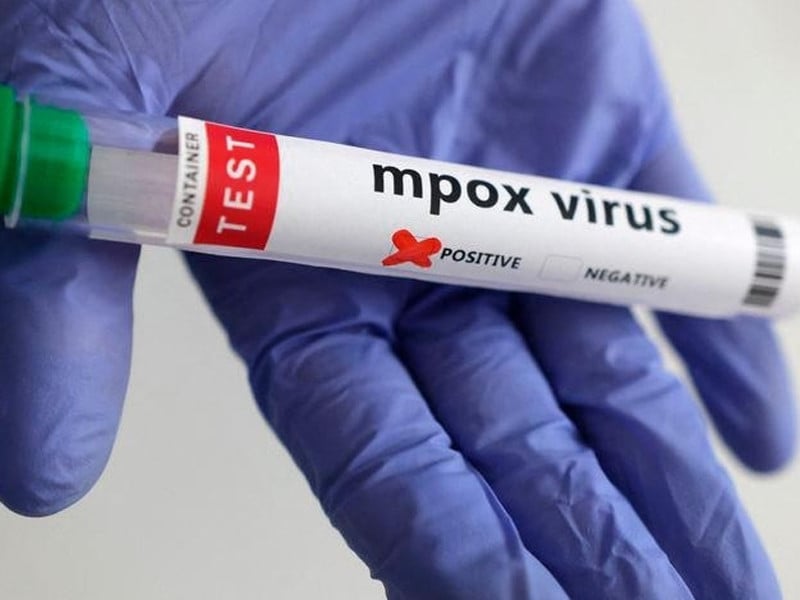Mpox: The Growing Concern and What You Need to Know

On August 12, 2024, the World Health Organization issued a high alert, declaring the Mpox outbreak a ‘Public Health Emergency of International Concern’. This news gave rise to unease among the public and made us all question: Is the world threatened by another pandemic like that of COVID-19? Are we going to be propelled into a lockdown once again? Is this disease fatal or treatable? Well, continue reading to find the answers to all your queries.
What is Mpox?
Mpox (formerly known as monkeypox) is a viral infection caused by the mpox virus. It was first identified in laboratory monkeys in 1958, which is how the disease got its name, though monkeys are not the primary carriers. The first case of Mpox infection in humans was detected in 1970 in the Democratic Republic of the Congo. Prior to 2017, the majority of cases of mpox occurred in central and western Africa. From 2018 to 2021, the virus was occasionally exported to other countries because of international travel. An unexpected mpox outbreak that began in May 2022 has spread to many nations, even those where there has never been a zoonotic or communal transmission of the disease.
Mpox is classified into two categories: Clade I and Clade II. As compared to clade II, clade I has been reported to cause more serious illness, sometimes leading to death. In the DRC, clade I mpox is endemic, or it occurs frequently. Clade I mpox has spread to several neighboring countries as well. A travel-associated case has also appeared in Kenya. The current outbreak is more widespread than any previous DRC outbreak.
How does the virus spread?
Animal-to-human spread: Rodents (like rats and squirrels) are the primary carriers of the mpox virus. Monkeys and other primates can also transmit the virus, although it is less common. The virus can be transmitted to humans through direct contact with an infected animal, either through bites, scratches, or exposure to the animal's body fluids.
Human-to-human spread: A healthy person can contract the virus by close contact with an infected person. All kinds of physical contact, including sexual contact, breathing really close to the sick person, and exposure to personal belongings (e.g., clothing and bedding) and items (e.g. electronics) used by the infected person can transmit the virus.
According to the WHO, during the 2022 outbreak, the virus transmission mostly happened through intimate relationships. Moreover, skin-to-skin contact during or after childbirth might transfer the virus from mother to baby.
To answer the first question, it would be right to acknowledge that while mpox is a rising concern, it is unlikely to trigger a pandemic like COVID-19. Mpox is less contagious than COVID-19, as it typically requires close, prolonged contact for transmission, unlike the airborne spread of COVID-19. So, there's no need to be wary of a complete lockdown. Lockdowns on a global scale are unlikely for mpox. Effective public health measures, including vaccination, timely diagnosis, and isolation of cases, have helped control its spread in many regions.
What signs and symptoms should one look out for?
A person may observe the following symptoms 3–17 days after being exposed to the virus, which may last 2-4 weeks:
- Rashes
- Swollen lymph nodes
- Fever and chills
- Headache
- Muscle and backaches
- tiredness
The rash, which can affect the face, hands, feet, groin, genital, and/or anal areas, resembles blisters or sores. These lesions can also appear on the eyes, in the mouth, throat, anus, rectum, or vagina. The rash caused by mpox often resembles a more familiar disease like chickenpox. It starts as red spots that develop into fluid-filled blisters before crusting over. However, mpox rashes tend to be larger and more painful, unlike chickenpox.
In most cases, the symptoms go away in a few weeks. However, complications can arise in children, pregnant females, or people with health issues and deficiencies. According to available data, between 0.1% and 10% of people with mpox have died.
What preventive measures should be followed?
To control the spread of this disease, take the following steps:
- Avoid contact with anyone who has a rash that resembles Mpox
- Steer clear of handling bedding, clothing, blankets, or other items that have come into contact with an infected person or animal.
- Sanitize your hands frequently.
- Quarantine the infected individual
- Avoid unprotected contact with animals that might carry the virus
What if I have the mpox?
In case you have contracted the virus, seek professional guidance and isolate yourself from others until the scabs of your lesions have fallen off and a new skin has formed, to prevent the spread of the virus.
When caring for a rash, refrain from scratching the skin, wash hands before and after touching lesions, and keep the skin dry and uncovered (unless in a room with someone else, in which case you should cover it with clothing or a bandage until you can isolate again).
Use antiseptic or sterilized water to keep the rash clean.
Mouth sores can be treated with salt water rinses, while body sores can be made to feel better with warm baths with baking soda and Epsom salts.
If necessary, paracetamol can be taken to help control the pain brought on by lesions. Advice from a healthcare provider should be sought if stronger pain medication is required.
Do we need to get vaccinated against mpox?
Vaccines are recommended for people who are at high risk of contracting the disease, like healthcare workers, or if you become exposed to an infected individual. Mass vaccination is not recommended by the WHO.
Currently, the World Health Organization advises using vaccines like the MVA-BN, LC16, or ACAM2000.
Mpox is no longer a distant problem confined to the African continent. It is high time to be more mindful of our actions and take responsibility. Knowledge is our greatest tool in protecting ourselves and our communities. By staying informed and taking proactive steps, each of us can play a vital role in preventing the spread.
Similar Post You May Like
-

CFCs, HFCs and their long, troubled history
At its peak, the ozone hole covered an area 7 times larger than the size of Europe, around 29.9 million km2, and was rapidly expanding
-

The Origin of Universe: Deciding point where it all began!
Let us unravel and surf through the ideas throughout ages to understand what the universe and its origin itself was to its inhabitants across history.
-

The Artemis Program
Inspired by the Greek goddess of the Moon, twin sister to Apollo, the artimis program was named on 14 May 2019 by Jim Bridenstine.






